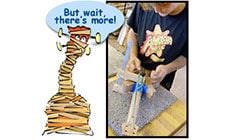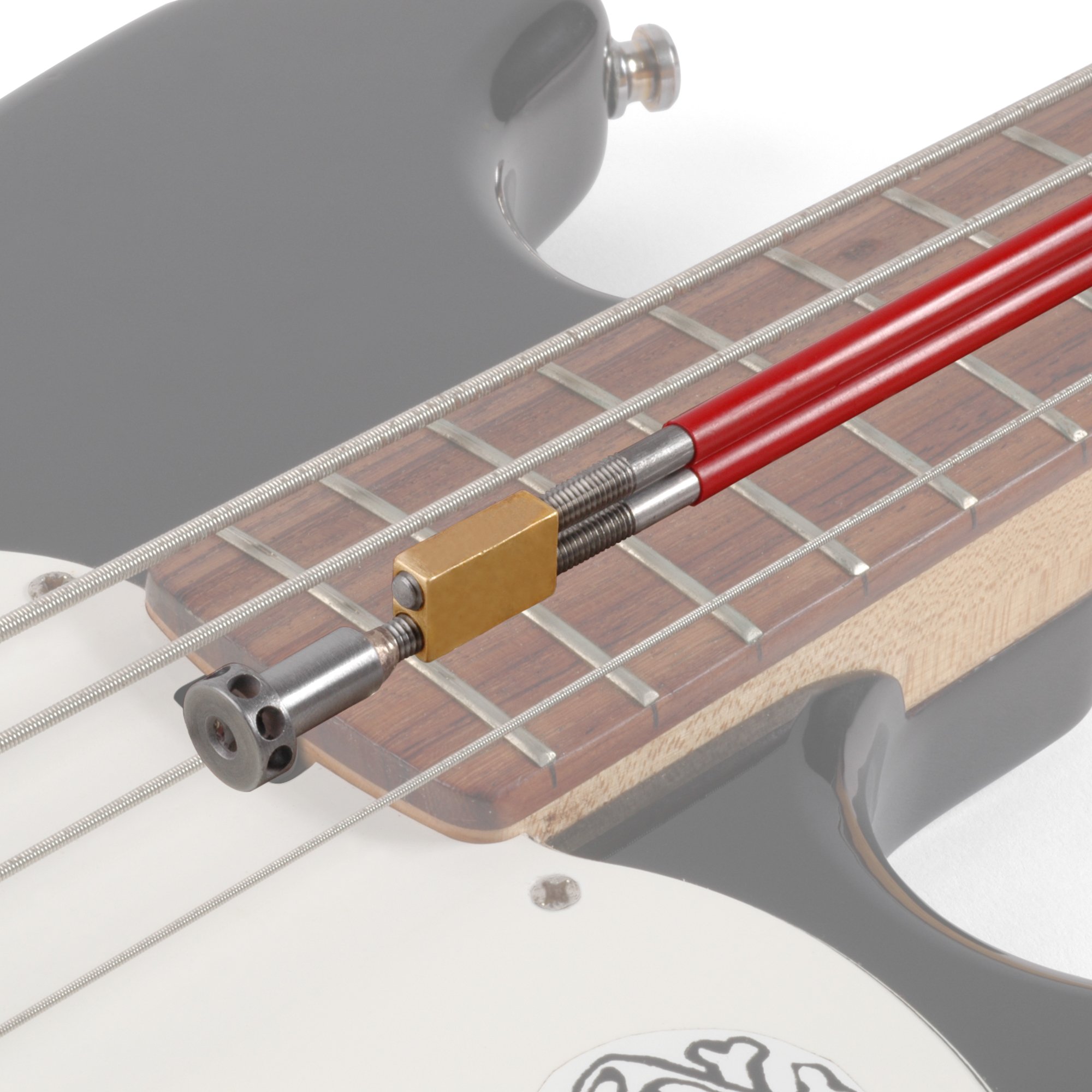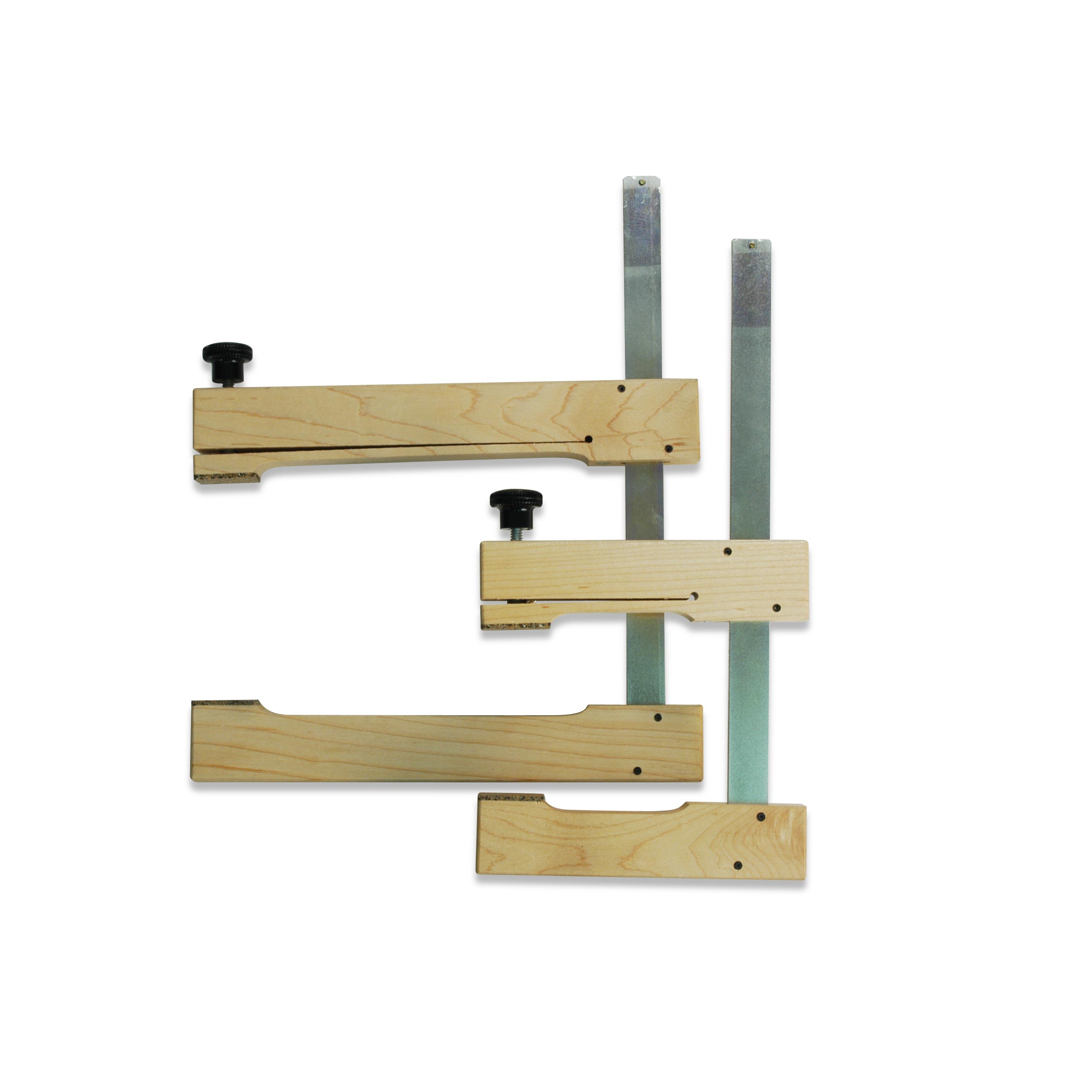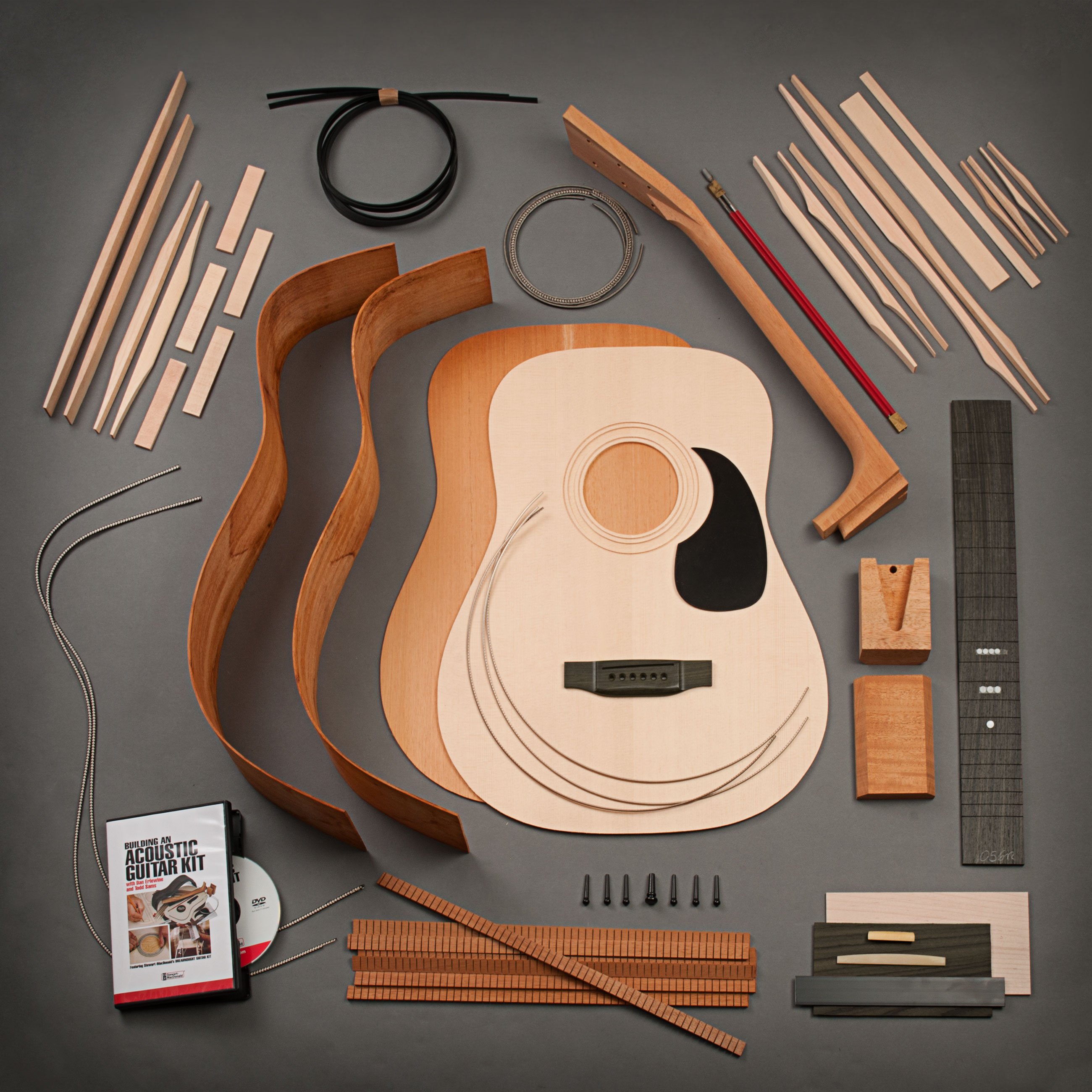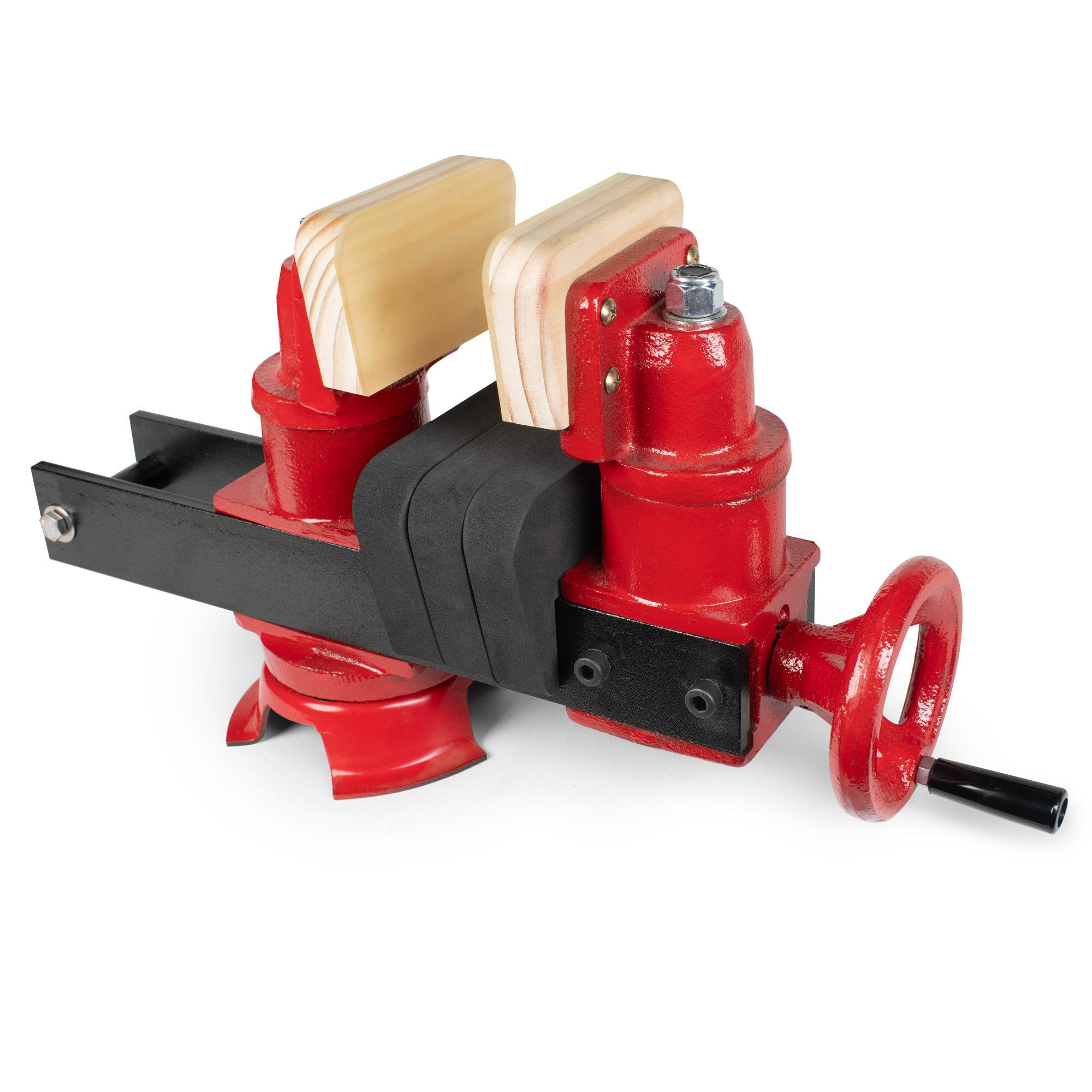Rubber bands as clamps: super-useful, and cheap!
A tip from the Purdue Guitar Workshop

Rubber bands make great versatile clamps, and they’re CHEAP!
My shopmate Gene Imbody and I helped teach this summer’s session of the Purdue Guitar Workshop. We were lucky to be in great company: Gibson/Fender legend Tim Shaw and longtime Seymour Duncan engineer Kevin Beller were teaching, too.

Talk about a lutherie madhouse!
In five days, 17 guitars were built from scratch by 17 students with 17 different skill levels. Teaching, helping and answering questions, we had our hands full!
In that situation, you need to work fast. And here’s a tip that helped a lot: rubber bands make great clamps.
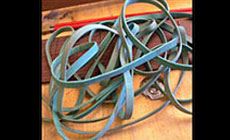
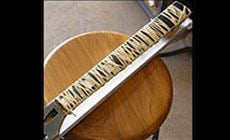
The rubber binding bands we use for gluing guitar bindings make a lot of other glue-ups faster, and they solve problems, too:
It takes a long time to position a bunch of clamps when gluing a fingerboard, and wet glue is slippery.
The board slides from side to side while you try to tighten the clamps. If we used clamps for this at the workshop, we’d never have managed to build all 17 guitars.
Rubber bands solve both these problems.
They go on fast, hold tight, and apply even pressure down the neck. They pull from both sides at once, so they naturally keep the fingerboard centered. Easy!
The fingerboard glue-up above is a Hurricane Katrina victim in our shop for restoration.
While we’re on the subject, here's one of our Dreadnought Kit necks during fingerboard glue-up. It’s rubber-bound and held in a vise by its peghead, with a stick propping up the tail end as described in our Dreadnought Kit instructions (a free booklet worth reading, even if you're not building a kit).
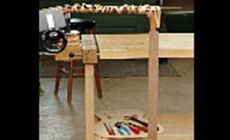
Clamp irregular shapes, like this nasty peghead break
I used a milling machine to remove the damaged wood, then plugged the holes with tight-fitting splines. For gluing, I clamped it with my pal, the rubber band.
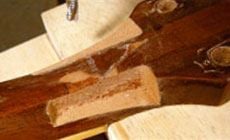
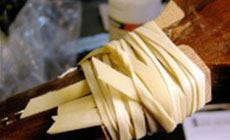
Meanwhile, back at the Purdue Workshop
Here’s Gene showing students how to glue a fingerboard. 1: Tie the band on at the nut, and wrap your way down the neck, pulling the band tight with each wind. 2: When you get to the heel, give it a few wraps and start winding a second layer of wraps right back up the neck again. When you get back to the nut, tie it off and leave it to dry.
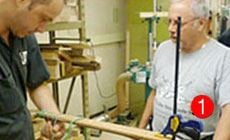

One last example
Here’s our shopmate Maceo Gabbard gluing a neck to one of his custom solidbody ukuleles. He’s adding clamping pressure by stretching a rubber band from the peghead to the clamp at the neck joint.
